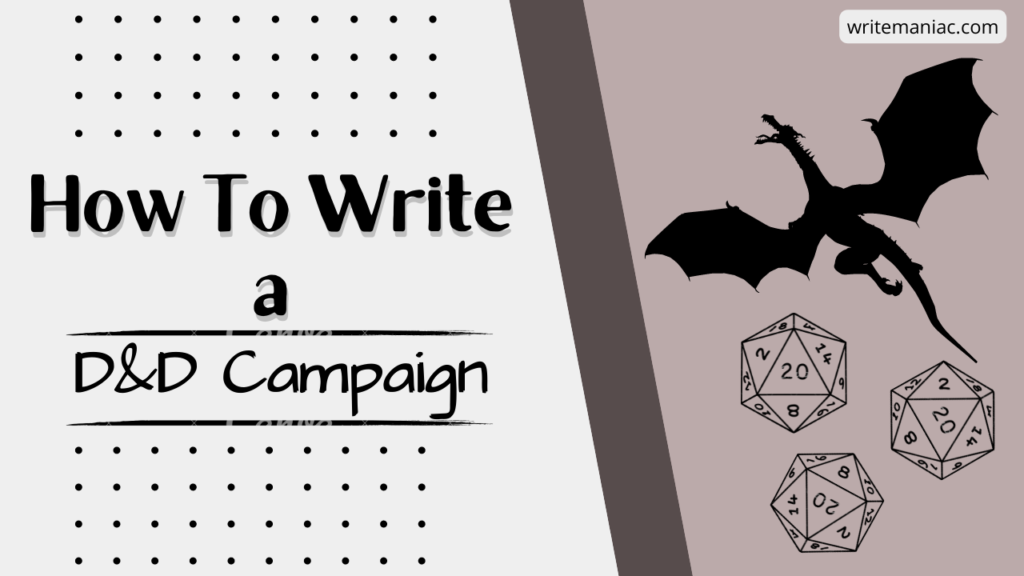
One of the best skills of a great writer is that they know their strengths in writing, and they know in which field they are weak.
With this knowledge, they can craft their work better than anyone else. They know how to turn a draft into a perfect piece of writing.
I love to write. It is one of my side passions and as a student, I always try to write whenever I get the time. I have been writing online for about 4 years now and I’m committed to making myself a better writer.
With my experience of 4 years of constant writing, I discovered many things that may help a writer find their true potential of becoming a great writer. I still consider myself relatively new and I’m still learning many new things as I continue to write more and more.
Nowadays, there is an ongoing debate that AI will take over the writing industry. That’s why it’s more important to find out your strengths as a writer and also your weaknesses as a writer.
Finding out my strengths and weaknesses in writing has helped me understand what I write better, and it helped me improve my writing skills overall.
If a writer doesn’t know their strengths and weaknesses in writing, they won’t be able to understand how to edit their work or where to make improvements in their own writing.
So, in this article, I’m going to discuss the strengths in writing of a good writer. Additionally, you will also find out the weaknesses and how to overcome them.
Everyone has their strengths and weaknesses in the field they work in. Similarly, every writer has some strengths and weaknesses in their writing.
For instance, a good strength in writing can be being able to create clear, compelling, and engaging content that resonates with your audience. You may have a good vocabulary and using this advantage you can craft better writing than others.
You may also have weaknesses in your writing such as, not being able to revise your work thoroughly and not being able to find out where to make edits to improve your writing.
You may procrastinate while writing, which is a common issue for many writers—even I suffer from this.
But don’t worry there are many ways to overcome these weaknesses and with enough practice, it’s possible to completely overcome these limitations of writing.
With this out of the way, let’s dive further into today’s topic—strengths and weaknesses in writing.
By the end of this article, you will have a better understanding of your own writing abilities and be better equipped to improve your writing skills. Enjoy!
Strengths in Writing:
I always strive to improve and gain experience as a writer. With time, I’ve been able to find out my own strengths as a writer, which has improved my writing significantly.
Here are the 9 strengths in writing:
1. Originality
Originality is one of the most important strengths in writing. It is the ability to come up with new and unique ideas that make their writing stand out.
Being original about your writing makes you more believable and thus helps strengthen your relationship with the reader. As a result, their work often captures the reader’s attention. This will make readers come back to read your content more and more.
One of the key ways that good writers achieve originality is by being open-minded and being their own selves. They are always looking for new information and new perspectives, and are not afraid to explore uncharted territory in their writing.
They can see the connections between different ideas and concepts. They can use these connections to develop new and original perspectives.
Good writers have a distinct writing style that sets them apart from others. They are able to use their own experiences, observations, and emotions to create writing that is personal and authentic.
In short, originality is an essential strength for any good writer. It allows them to stand out from the crowd, capture the reader’s attention, and create writing that is truly unique.
2. Being Able To Focus More

Being focused is also a must-have ability of a good writer. Good writers have the ability to focus their attention on the task at hand, even when there are distractions around them.
You know this can be hard for beginner writers. Oftentimes, when you are new to writing, you will lose focus while writing and words won’t come naturally while writing—I’ve been there.
When I was at the beginning of my writing career, I used to lose focus because of the silliest thing possible. But as time went on, I became more experienced and was able to focus more while writing.
One way of achieving more focus is to turn off distractions such as social media, notifications, and other external factors. This way you can focus more on the task at hand and maintain your concentration for extended periods of time.
If you are more focused you will make fewer mistakes while writing. This will help you to produce high-quality work that is free of errors and typos. Thus resulting in more content in less time.
3. Making Things Easy To Understand for the Readers
This is not as simple as it sounds. Most beginner writers fail to achieve this. You know, nobody will read your writing if you are just being factual and boring. While explaining a topic be more engaging with your readers and provide them examples so they can better understand the topic you are explaining.
Good writers understand the importance of tailoring their writing to their audience and adapting their style accordingly. Just be simple and use direct language. You don’t need to be over-scientific. Avoid using technical terms that may confuse your readers.
Use things like headings, subheadings, bullet points, and other formatting tools to help guide the reader through your writing. Always remember to use small paragraphs containing two or three lines. This will make your content more readable.
This ability helps a writer connect with their audience and produce writing that is accessible, engaging, and effective.
4. A Passion for Reading

I know, I know—you’ve probably heard this a dozen times. But believe me, if you don’t have a passion for reading, you probably won’t go too far in your writing career. This is a must-have strength of a good writer.
I love to read. I always learn from other creative writers and their writing styles. When I started writing for Medium, I started by reading other great articles. This helped me understand how a better writer writes for their audience.
You know reading will help you find inspiration from the writing of others. This will help you develop the ability to analyze and understand the writing of others.
Reading will help you identify the techniques and styles that other writers use to create effective and engaging writing. You can then apply these techniques and styles to your own writing, creating writing that is polished, well-written, and effective.
5. Researching

I’ve always said this to beginner writers and I will keep repeating it. Researching is the single best way to earn the trust of your readers. If you don’t have data in your writing why would anyone trust you?
At least do some research before writing, if you can’t generate data by doing your experiments—no worries, use other people’s research and properly cite them in your article. This will help you gain more trust and make your writing more believable because it has actual real data.
If you learn the ability to conduct thorough research and gather information that is relevant to your topic, you will be a better writer in no time.
One of the key ways that good writers conduct research is by using a variety of different sources. They understand that different types of sources provide different types of information, and they use a range of primary and secondary sources to gather the information they need.
Books, articles, academic papers, interviews, online resources, and many other things may come in handy while researching and writing your piece.
6. Setting a Goal
Better writers always set goals before starting their writing. Good writers understand that setting goals helps them to stay on track and focused on their writing, which ultimately improves the quality of their work.
Many intermediate writers also set timelines for their goals, they understand that setting a deadline for a goal will help them to stay focused and motivated. They set deadlines for different milestones of the writing process and make sure to stick to them.
However, they don’t set goals that are very broad. They understand that setting a goal such as “I want to write a book” is too broad and does not provide enough direction.
Instead, they set specific goals like “I want to write a fiction novel of at least 90,000 words in the next 6 months, and I will write about 500 words every day to achieve this goal” This is measurable, specific, and achievable.
7. Diverse Vocabulary and Word Choice
Good writers understand the power of words and the impact they can have on the reader’s understanding and perception of the writing.
Good writers understand the power of descriptive language to create vivid images in the reader’s mind and to convey emotion. They use descriptive words and phrases to create detailed imagery and to make their writing more engaging and interesting.
Good writers also understand the importance of appropriate word choice for the audience and the purpose of the writing. They use formal language for academic writing and more casual language for blog posts for example.
Simply a passion for reading and exposing yourself to different forms of writing will go a long way to help you achieve this strength as a writer. Reading more will help you to learn new words and phrases and to expand your vocabulary.
8. Understanding the Audience and Grasping Their Emotion Through Writing
As a writer, you will want to have the ability to identify the audience’s needs, preferences, and emotions, and to use this understanding to create writing that resonates with them.
This will help you to achieve a more engaged audience and help you make your branding in writing.
Good writers understand the importance of using emotions in their writing. They understand that emotions can be a powerful tool to connect with the audience and to make their writing more engaging.
They are able to connect with their readers on a deeper level, which makes their writing more impactful and meaningful.
Using words and phrases that evoke emotions, such as joy, fear, anger, and sadness creates an emotional connection with the audience.
This can be very difficult to achieve as a beginner writer, but it will become easier as you gain more experience in writing.
9. Better Creativity

We have come to the final point of today’s topic, which is better creativity. Good writers are creative. They understand that writing is not just about putting words on a page, but about using those words to create something truly unique and special.
They have the ability to think outside the box, come up with new and interesting ideas, and take their writing in unexpected and exciting directions.
Better writers can use their creativity and imagination and use it to create writing that is truly original and memorable.
You will have to see things differently as a writer. Don’t be afraid to challenge conventions, and explore new and unconventional ideas in your writing. This will help you be more unique and creative.
However, don’t try to overdo it as it can sometimes cause you to lose your personal voice and originality in your content, just try to sound as natural and original as possible while exploring new ideas.
How Do You Identify Your Strengths in Writing?
There are a few ways to identify your strengths in your writing. I’ve gathered some of them here:
- Try to take some time to think about your writing and the writing process. Find out what you enjoy about writing and what comes naturally to you. Think about what topic is easy and what topic is difficult for you.
- Ask for feedback from others on your writing. Look for patterns in the feedback you receive, and pay attention to what people compliment you on.
- Keep a journal of your writing process. Whenever you get the time, just write down your thoughts, ideas, and what you found easy or difficult about your writing. Review your journal regularly to see if you can identify any patterns or strengths.
- Experiment with different forms of writing such as poetry, fiction, non-fiction, and journalism. With this, you can identify what type of writing you are better at and what you enjoy the most.
Weaknesses In Writing
People have their own strengths and weaknesses in every field of work. Same for the writers as well. Just like identifying strengths, identifying weaknesses in writing is an important step in improving your craft. I’ve gathered some of the weaknesses in writing.
However, in this article, I’ll just mention the weaknesses and not describe them in detail. I may write another article about the weaknesses in writing later. Here are some of the weaknesses in writing:
- Lack of focus.
- Difficulty organizing thoughts and ideas logically and coherently.
- Difficulty using descriptive language.
- Not conducting thorough research and incorporating information into the writing.
- Lack of editing and revising after writing your content.
Ways To Overcome Weaknesses In Writing
You may have weaknesses in your writing. But there are ways to overcome these weaknesses as well. To be a better writer, it’s important to identify and overcome your weaknesses in writing. Here are some ways you can overcome them and take a step closer to becoming a better writer:
Practice Practice and Practice:
Regular practice is one of the best ways to improve your writing skills. The more you write, the more you will become familiar with your weaknesses and will be able to work on them.
You will easily understand your limits as a writer and what to do to improve.
Read Read and Read:
I can’t stress this enough. Reading is really very essential part of becoming a better writer. If you read articles and books by great writers you will understand what I’m talking about.
This will also help you improve your mistakes and weaknesses as a beginner writer.
Set Specific and Achievable Goals:
Setting clear goals can help you to focus on areas where you need to improve and measure your progress. I always try to follow this.
You know if you target to write a 5000 words article in one sitting you will easily get bored. Instead, set small goals of writing 500 words in one sitting then take a break, and then continue on to complete the full article. This helps a lot.
Use Editing Tools:
If you are a slow writer and want to reduce your editing time then this is a must. You know, there are several online tools and software that can help you to identify and correct grammar, punctuation, and spelling errors.
I use Grammarly to reduce typing and grammatical mistakes. Titlecaseconverter to edit my titles and headlines. You can use Hemingway Editor to simplify your sentences for readers. There are many other useful tools to help make your writing journey easier, use those to your advantage.
Be Consistent:
Consistency is the key to writing success. You have to continue to write no matter how hard it gets. Try to write every day and stop procrastinating.
Develop a writing routine, maintain a consistent tone and voice, and keep a clear focus on the message and purpose of your writing.
You will get more experience and this way you can improve your writing and overcome your weaknesses.
Get Feedback From Your Audience:
This can be a great way to overcome your weaknesses. Feedback will help you improve the quality and effectiveness of your writing. You can conduct surveys or questionnaires to gather feedback from your audience.
However, it’s also important to consider the type of feedback you receive. Some feedback may be positive, while other feedback may be more critical.
It’s important to take all feedback into consideration but to also use your own judgment in determining which feedback to incorporate into your writing.
Final Thoughts
To improve your writing, it’s important to identify your strengths and weaknesses and to take steps to overcome your weaknesses. Knowing your own strengths can help boost your confidence as a writer, which goes a long way to keep you motivated while writing.
Keep in mind that becoming a good writer is a continuous process, and it takes time and practice. Be patient with yourself, and remember that every writer has strengths and weaknesses.
The key is to keep practicing and gain more experience as a writer. Identify your weaknesses and work your way to overcome them. With time and effort, you can improve your writing skills and become a better writer.
I hope this article helped you understand how to identify your strengths in writing and overcome weaknesses in writing. Thanks for reading.
You might be interested to read the following to increase your experience and strengths as a writer:


